I. Introduction to Hair Loss
Understanding Hair Loss
Hair loss, medically known as alopecia, is a condition affecting millions worldwide. It is not merely a physical phenomenon but also an emotional one, often impacting self-esteem and social dynamics. Hair loss can manifest in various forms, ranging from thinning hair to complete baldness. Its prevalence transcends age, gender, and ethnicity, making it a universal concern.
Hair loss results primarily from a combination of genetics, hormonal changes, and aging, though stress, nutrition, and medical conditions can also contribute significantly. Understanding hair loss requires a deep dive into its types, causes, and treatments, equipping individuals with the knowledge to tackle this condition effectively.

Prevalence and Impact
The prevalence of hair loss is staggering, with significant numbers reported across different age groups and demographics. For instance, androgenetic alopecia, commonly known as male-pattern baldness, affects about 50% of men by age 50. Women are not immune either, with a substantial percentage experiencing noticeable hair thinning, especially post-menopause.
The psychological impact of hair loss extends beyond the physical, causing reduced self-esteem, anxiety, and, in severe cases, depression. The societal emphasis on hair as a symbol of youth and vitality exacerbates these feelings, making hair loss a distressing experience for many.
II. Hair Loss – The Biology of Hair
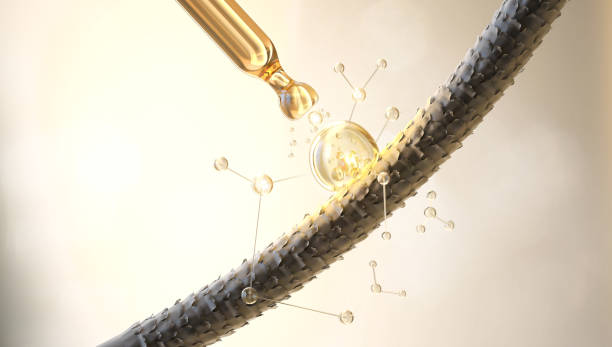
Hair Growth Cycle
To understand hair loss, it’s crucial to comprehend the hair growth cycle. This continuous process involves three phases: anagen (growth), catagen (transition), and telogen (resting). Each hair follicle undergoes these phases independently, ensuring a mix of hairs in different stages at any given time.
The anagen phase, which lasts several years, sees active hair growth. This is followed by the catagen phase, a brief transitional period that marks the end of dynamic growth. Lastly, the telogen phase, which lasts a few months, culminates in hair shedding. Disruptions in this cycle often lead to hair loss conditions.
Factors Affecting Hair Health
Various factors can impact hair health and the growth cycle. Nutritional deficiencies, particularly in iron, protein, and vitamins, can hinder hair growth. Hormonal imbalances, especially those involving thyroid hormones or changes during pregnancy and menopause, also play a significant role.
External factors such as stress, harsh hair care practices, and environmental aggressors like pollution and UV radiation can further damage hair health. Understanding these factors is pivotal in preventing hair loss and maintaining healthy hair.
III. Types of Hair Loss
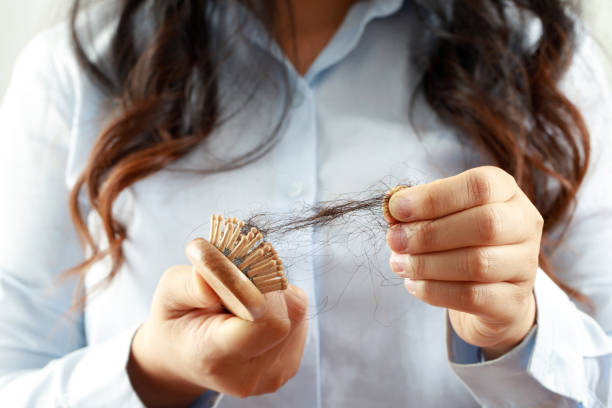
Androgenetic Alopecia
Androgenetic alopecia, commonly known as male-pattern baldness, is the most common form of hair loss. In men, it manifests as a receding hairline and thinning at the crown, while women typically experience overall hair thinning without a receding hairline. This condition is primarily hereditary and influenced by androgens, male hormones that regulate hair growth.
Hair Loss – Alopecia Areata
Alopecia areata is an autoimmune disorder in which the immune system mistakenly attacks hair follicles, causing hair_loss, often in patches. It can affect both men and women at any age and leads to unpredictable and varying degrees of hair_loss. The condition can be limited to the scalp or involve other hair-bearing areas of the body.
Telogen Effluvium
Telogen effluvium is characterized by excessive hair shedding, often as a result of a shock or stressor to the system. Triggers can include severe stress, major surgery, significant weight loss, or a severe illness. The condition is usually temporary, with hair growth resuming once the underlying cause is addressed.
IV. Causes of Hair Loss
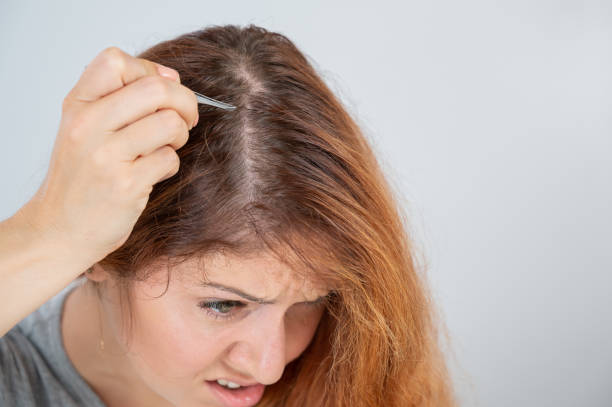
Genetic Factors
Genetics plays a pivotal role in hair loss, particularly in androgenetic alopecia. This type of hair_loss is inherited, meaning if your family has a history of baldness, you’re more likely to experience it, too. The genetic influence largely determines the pattern, extent, and age at which you start losing hair. Inherited hair_loss typically follows a predictable pattern and can begin as early as one’s teenage years.
Hormonal Changes
Hormones greatly influence hair growth and loss. Androgen levels, associated with masculinity, are the primary cause of hair loss in both sexes. Hormonal changes during pregnancy, postpartum, birth control discontinuation, and menopause can cause hair_loss. Hair thinning can also be caused by thyroid hormone imbalances (both hyperthyroidism and hypothyroidism).
Medical Conditions
Hair loss can be caused by scalp infections like ringworm, diseases such as lupus and diabetes, and certain medications used for cancer, arthritis, depression, heart problems, and high blood pressure.
V. Psychological Impact of Hair Loss
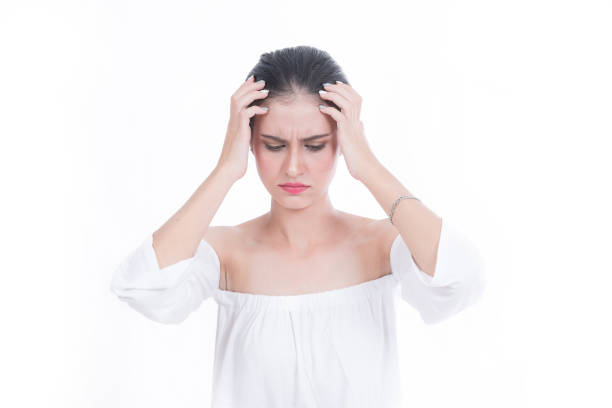
Self-Image and Confidence
Hair loss can profoundly affect one’s self-image and confidence. Hair is often seen as a significant aspect of personal identity, especially in social contexts. Experiencing hair_loss can lead to feelings of unattractiveness and a diminished sense of self-worth. This is particularly evident in societal settings that place a high value on youthful appearance and full hair.
Social and Emotional Effects
The emotional toll of hair loss can be severe, leading to social anxiety and avoidance of events. It can even impact professional interactions. The visibility of hair_loss can make individuals feel vulnerable to negative judgments or comments, exacerbating feelings of distress and isolation. This emotional toll underscores the importance of addressing hair_loss with empathy and understanding.
VI. Diagnosing Hair Loss
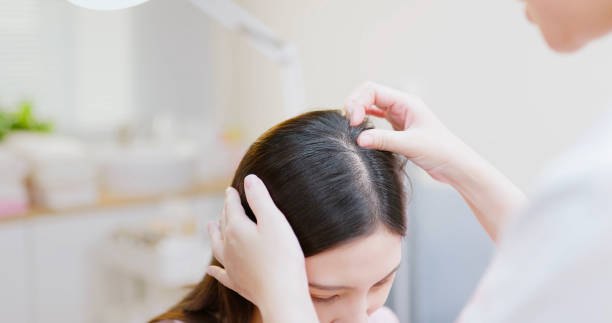
Medical Evaluation
Diagnosing hair_loss starts with a thorough medical evaluation. A healthcare professional will ask about your medical history, diet, hair care, and recent stressors. Understanding your family history of hair_loss can also provide insights. The doctor will examine your scalp to assess the pattern of hair loss and look for signs of inflammation, redness, or scarring.
Tests and Procedures
Several tests can help diagnose the cause of hair loss. Blood tests can uncover medical conditions related to hair_loss, such as thyroid disease. A scalp biopsy involves removing a small section of skin from the scalp to examine it under a microscope and determine if an infection causes hair loss. Additionally, a pull test may be done where several dozen hairs are gently pulled to see how many come out, which helps determine the stage of the shedding process.
VII. Treatment Options for Hair Loss

Medications
Various medications have proven effective in treating hair loss. Minoxidil, available over the counter, is one of the most common and can be used by both men and women. It’s applied directly to the scalp and works by stimulating hair growth and slowing balding. Finasteride, another medication, is available by prescription for men. It reduces hair_loss by blocking DHT, a natural hormone that causes balding.
Topical Treatments
In addition to medications, there are topical treatments like creams, oils, and serums that can be applied directly to the scalp. These products often contain ingredients that strengthen hair, stimulate hair growth, or treat the scalp conditions that lead to hair thinning. Topical treatments are popular due to their ease of use and minimal side effects.
Surgical Options
For those experiencing more severe hair loss, surgical options such as hair transplant surgery can be considered. This involves moving hair from areas of the scalp with active hair growth to the balding or thinning areas. Another method is scalp reduction, which involves removing part of the bald scalp and closing the space with a hair-covered scalp. These procedures can be effective but are usually more expensive and invasive.
VIII. Natural Remedies for Hair Loss
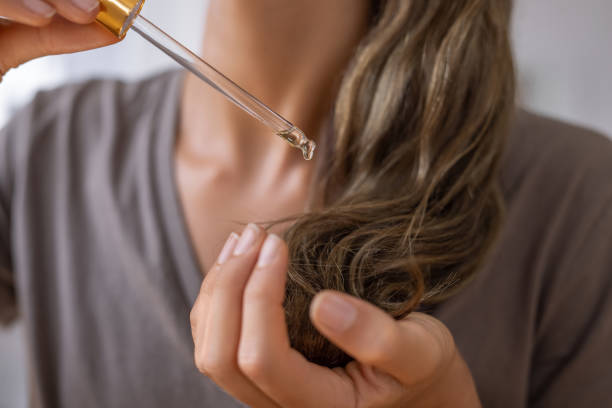
Diet and Nutrition
A well-balanced diet rich in essential nutrients can significantly impact hair health. Protein-rich foods like eggs, nuts, and fish can strengthen hair. Vitamins A, C, and E, along with minerals like iron and zinc, are vital for hair growth and can be found in various fruits, vegetables, and meats.
Herbal Supplements
Herbal supplements containing popular ingredients like saw palmetto, ginseng, and biotin are commonly used to manage hair loss by promoting hair growth and reducing hair_loss. However, it’s essential to consult with a healthcare provider before starting any supplement regimen.
Hair Loss – Lifestyle Changes
Making specific lifestyle changes can positively impact hair health. Engaging in activities that alleviate stress, like yoga and meditation, can help prevent hair loss caused by stress. Regular exercise can improve your overall body health, including hair growth. By avoiding harsh chemical treatments and hairstyles that pull on the hair, you can also prevent hair_loss.
IX. Hair Care and Maintenance

Proper Hair Care Techniques
Effective hair care is crucial in preventing hair_loss. This includes gentle washing with a mild shampoo, using conditioner to keep hair hydrated, and minimizing the use of heat styling tools. Regular haircuts can prevent split ends, which can lead to hair breakage.
Avoiding Hair Damage
It’s essential to avoid practices that can damage hair. This includes preventing tight hairstyles like ponytails or braids that pull on the scalp, limiting the use of chemical treatments like dyes and relaxers, and protecting hair from excessive sun exposure. Using a soft brush and avoiding brushing hair while it’s wet can also reduce the risk of hair damage.
X. Emerging Research and Future Treatments
Stem Cell Research
Stem cell research is at the forefront of groundbreaking treatments for hair loss. Scientists are exploring how stem cells can be used to regenerate hair follicles, the tiny organs that grow hair. Recent studies suggest that stem cells offer a potential solution for hair_loss by creating new follicles or reviving dormant ones.
New Medications and Therapies
Alongside stem cell advancements, new medications and therapies are continually being developed. These include treatments targeting specific molecular pathways involved in hair growth and loss, offering more personalized and practical solutions. Additionally, researchers are investigating the use of lasers and other light-based therapies to stimulate hair growth.
XI. Myths and Misconceptions about Hair Loss

Debunking Common Myths
There are many myths surrounding hair loss, such as the idea that wearing hats causes baldness or that hair_loss is solely a male problem. These myths often lead to misconceptions and ineffective treatments. Distinguishing fact from fiction is crucial to understanding and effectively managing hair_loss.
Understanding Facts
Understanding the facts about hair loss involves recognizing its multifactorial nature and the role of genetics, hormones, and lifestyle factors. It’s also important to acknowledge that hair_loss can affect anyone and is not a sign of diminished health or vitality.
XII. Case Studies and Success Stories
Personal Experiences
Personal stories and case studies provide valuable insights into the real-life impact of hair loss and its treatments. They offer hope and guidance to those experiencing similar issues and show the potential for positive outcomes with the right approach.
Treatment Successes
Success stories in hair_loss treatment vary widely, ranging from significant hair regrowth with medication to successful hair transplants. These successes highlight the advances in therapy and the potential for restoring not only hair but also confidence and quality of life.
XIII. Hair Loss – Key Insights and Reflections

Summary of Findings
This article has explored the complex nature of hair_loss, covering its causes, psychological impact, and the wide range of treatment options available. From understanding the biology of hair to debunking common myths, the goal has been to provide comprehensive and accurate information.
Final Thoughts and Recommendations
In conclusion, hair loss is a multifaceted condition requiring a personalized approach. It’s essential to consult healthcare professionals, consider all treatment options, and maintain realistic expectations. Ongoing research promises new and improved treatments, offering hope for the future.
Hair Loss (FAQs)
1- Can diet affect hair loss?
Yes, diet plays a crucial role in hair health. Protein, vitamin, and mineral deficiencies can lead to hair_loss.
2- Is hair loss always permanent?
Only sometimes. Conditions like telogen effluvium are temporary, while others, like androgenetic alopecia, are more permanent.
3- Can stress cause hair loss?
Yes, high levels of stress can lead to conditions like telogen effluvium, causing temporary hair shedding.
4- Are hair loss treatments equally effective for everyone?
No, the effectiveness varies based on the type of hair loss and individual factors like age and health.
5- Is it possible to prevent hair loss?
While not all hair_loss can be prevented, maintaining a healthy diet, managing stress, and avoiding harsh hair treatments can help.
6- Do hats cause hair_loss?
No, this is a myth. Wearing hats does not cause hair_loss.
7- Can hormonal changes affect hair loss?
Yes, hormonal changes, especially related to pregnancy, menopause, or thyroid problems, can cause hair_loss.
8- Is hair loss more common in men or women?
It is common in both, but the pattern and extent differ between genders.
9- Can over-styling hair lead to hair loss?
Yes, practices like tight hairstyles and excessive heat can cause hair breakage and loss.
10- Are natural remedies effective for hair_loss?
Some natural remedies can support hair health, but their effectiveness varies, and they are usually not a standalone solution.
Read also.. The Benefits Of Rose Water For Short And Curly Hair, How To Use It, And Its Harms

